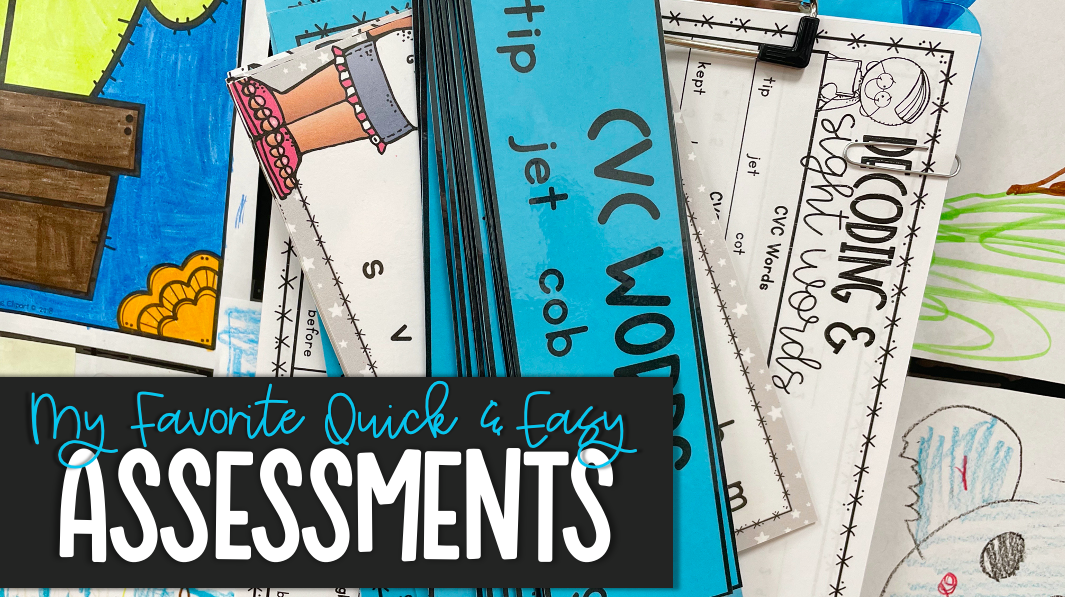
As special education teachers, we are constantly needing to assess students. Sometimes, we are assessing new students for move-ins or evaluations, while other times, we are assessing before an annual case conference.
Either way, you need something that is quick, easy, and effective.
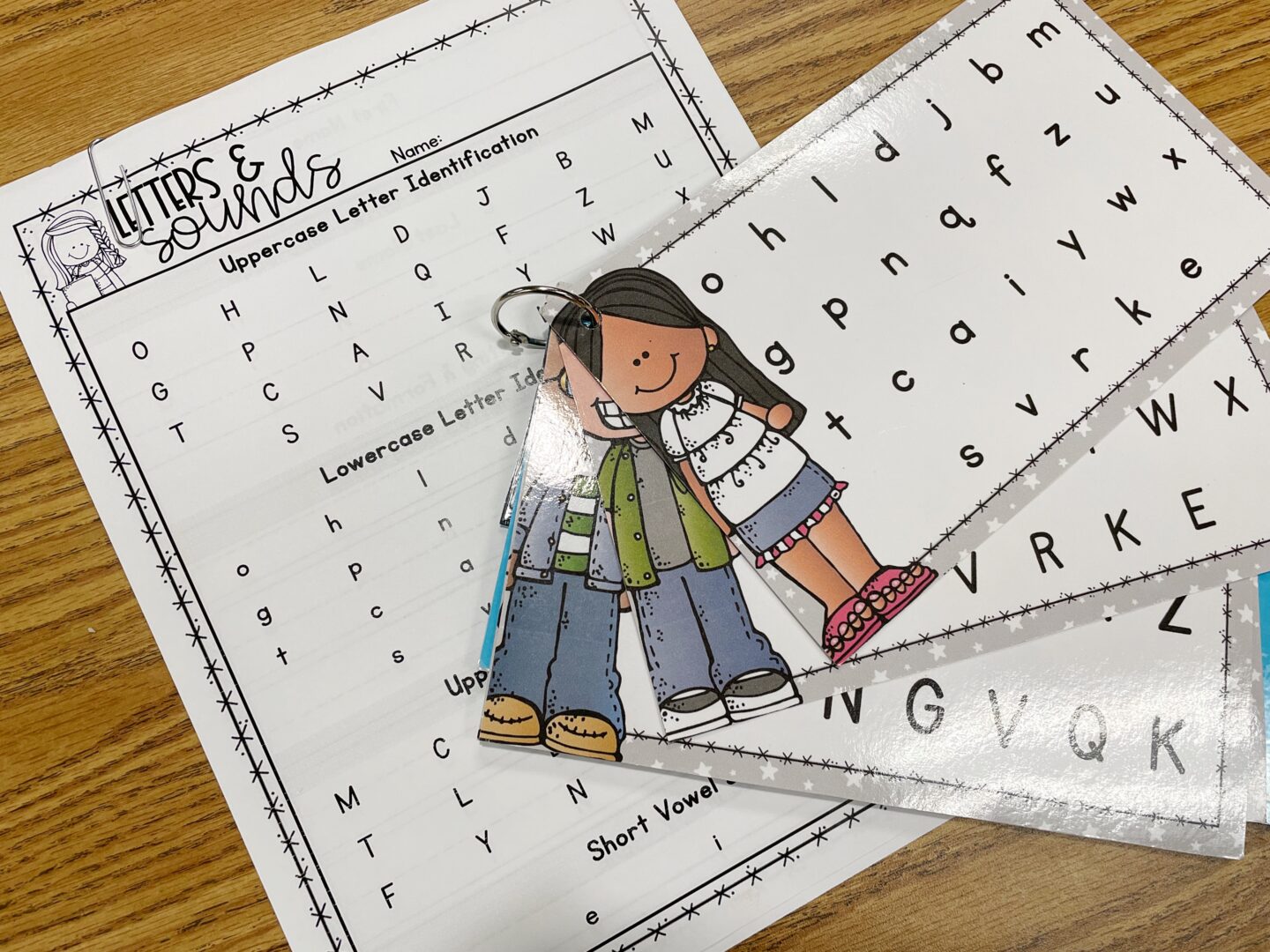
Letters & Sounds
For our younger learners, we might need to know how many letters they can recognize or produce the sound. These cards and tracking sheets make it easy to do just that.
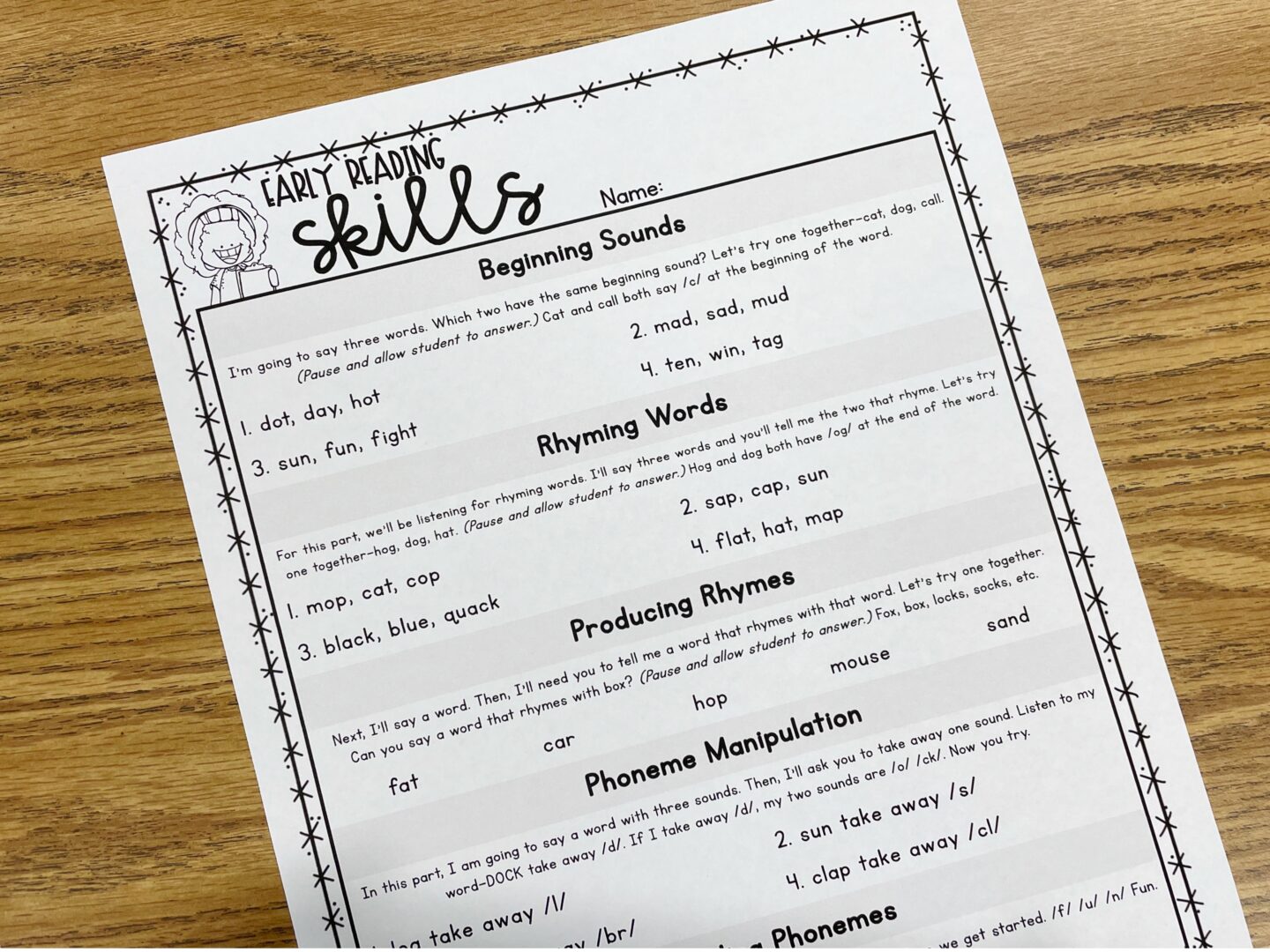
Early Reading Skills
I also love to see how my younger or lower level readers do with beginning sounds, manipulating sounds, and rhyming words.
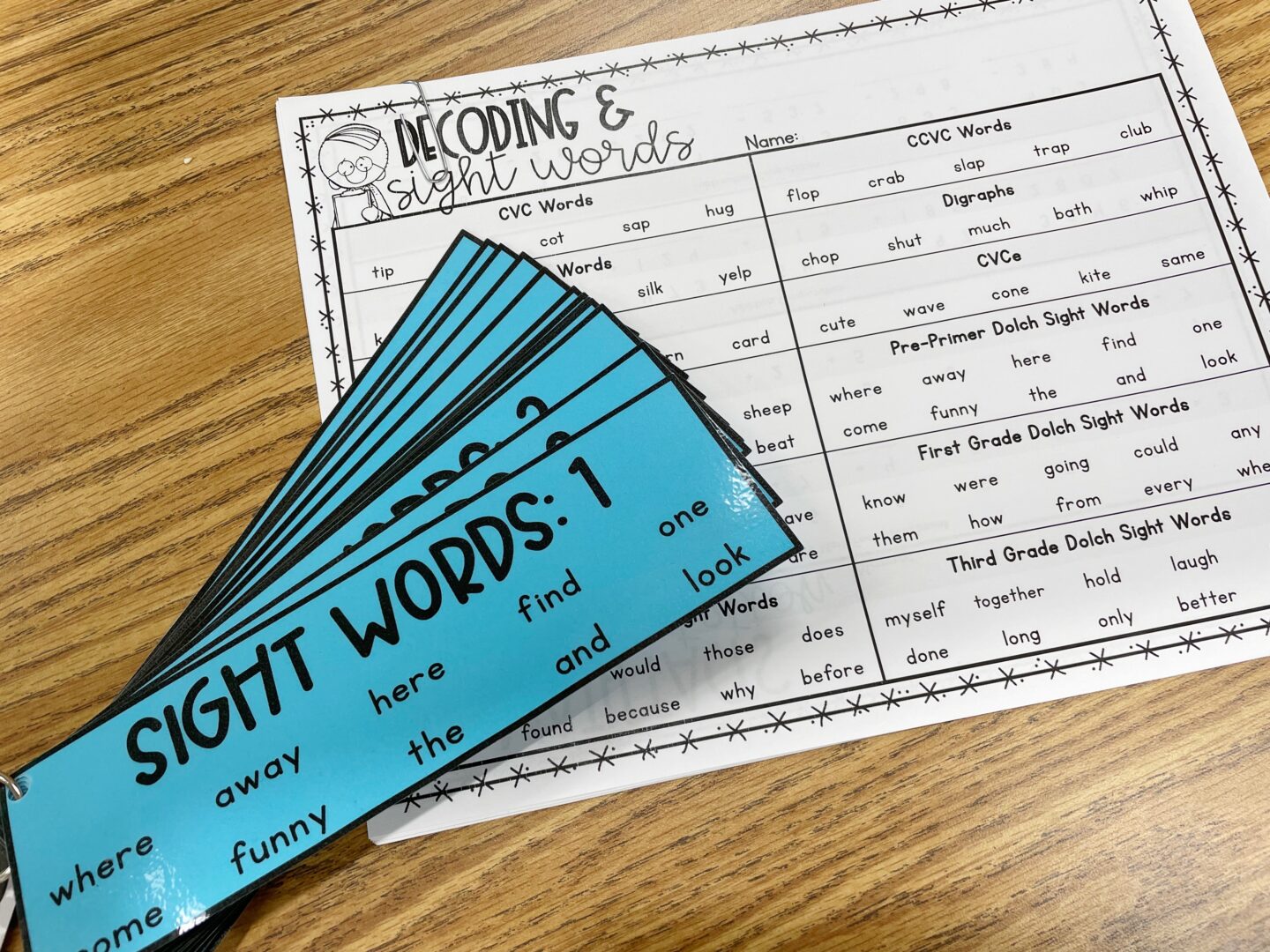
Decodable Words & Sight Words
This is probably my most used assessment sheet. I like to see if students are able to read words that follow typical spelling patterns. I also like to see how they are with memorization. For some of our students this is a strength when decoding words might be difficult.
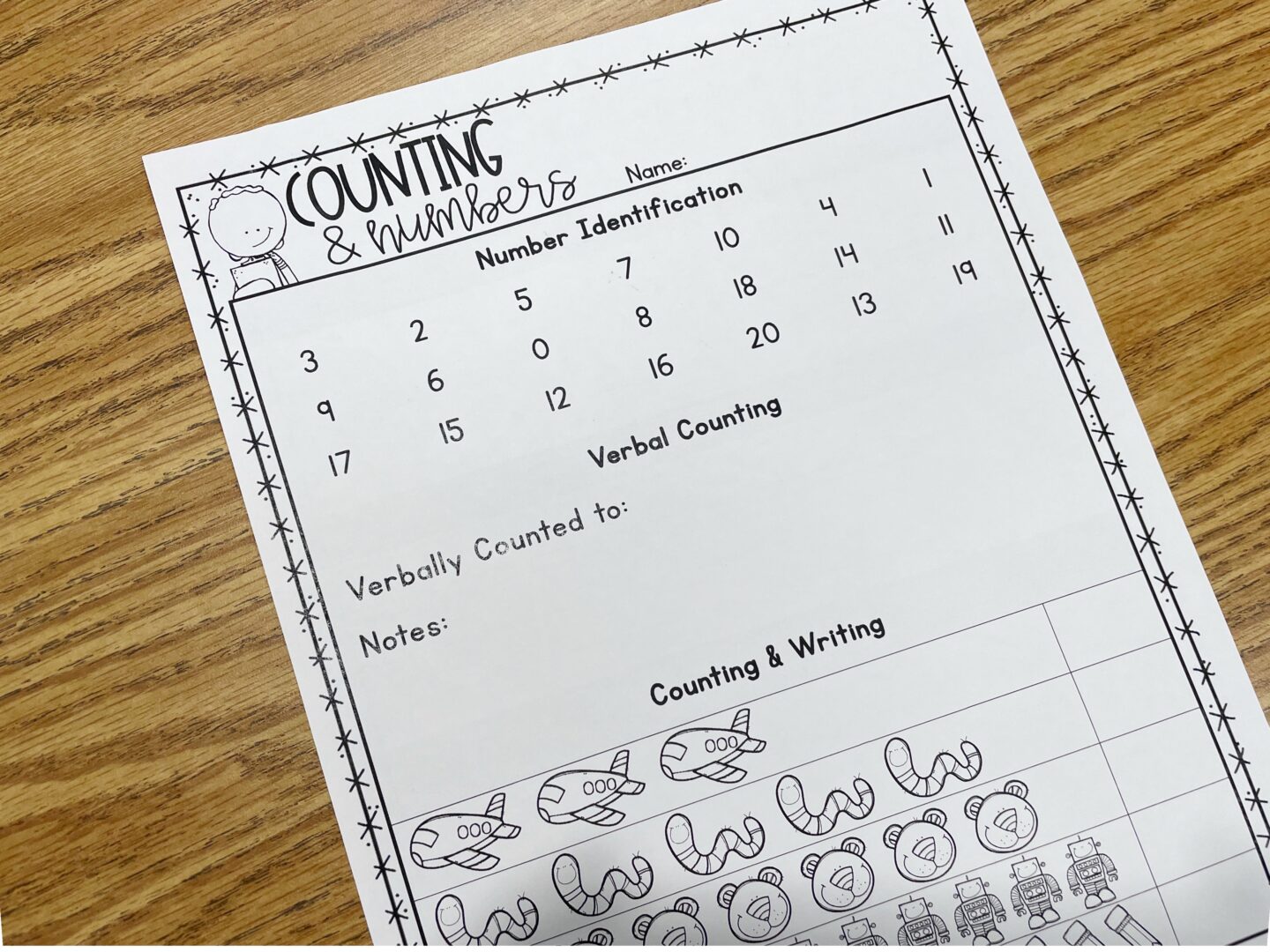
Numbers & Counting
What numbers can students identify? Can they verbally count? Can they record the number of objects in a group. These are foundational skills that our younger students will need to master.
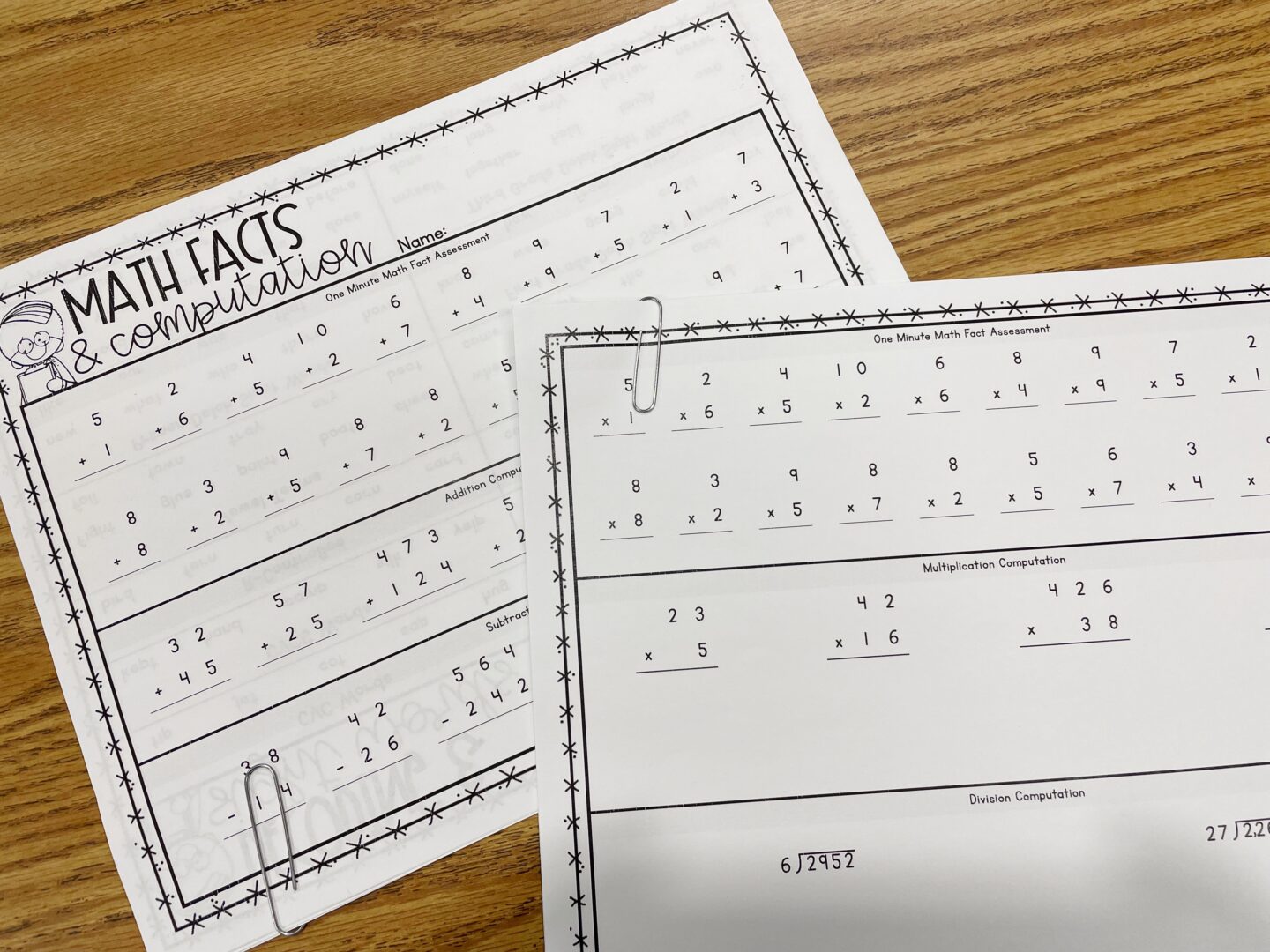
Basic Math Skills
This is the second most used assessment in my current role. In fact, I copy the math facts and computation page on the back of my decoding and sight word page. For most students between first and fourth grade, these assessments are appropriate.
With my fourth and fifth graders, the second page with multiplication facts, multiplication with larger digits, and long division comes in handy.
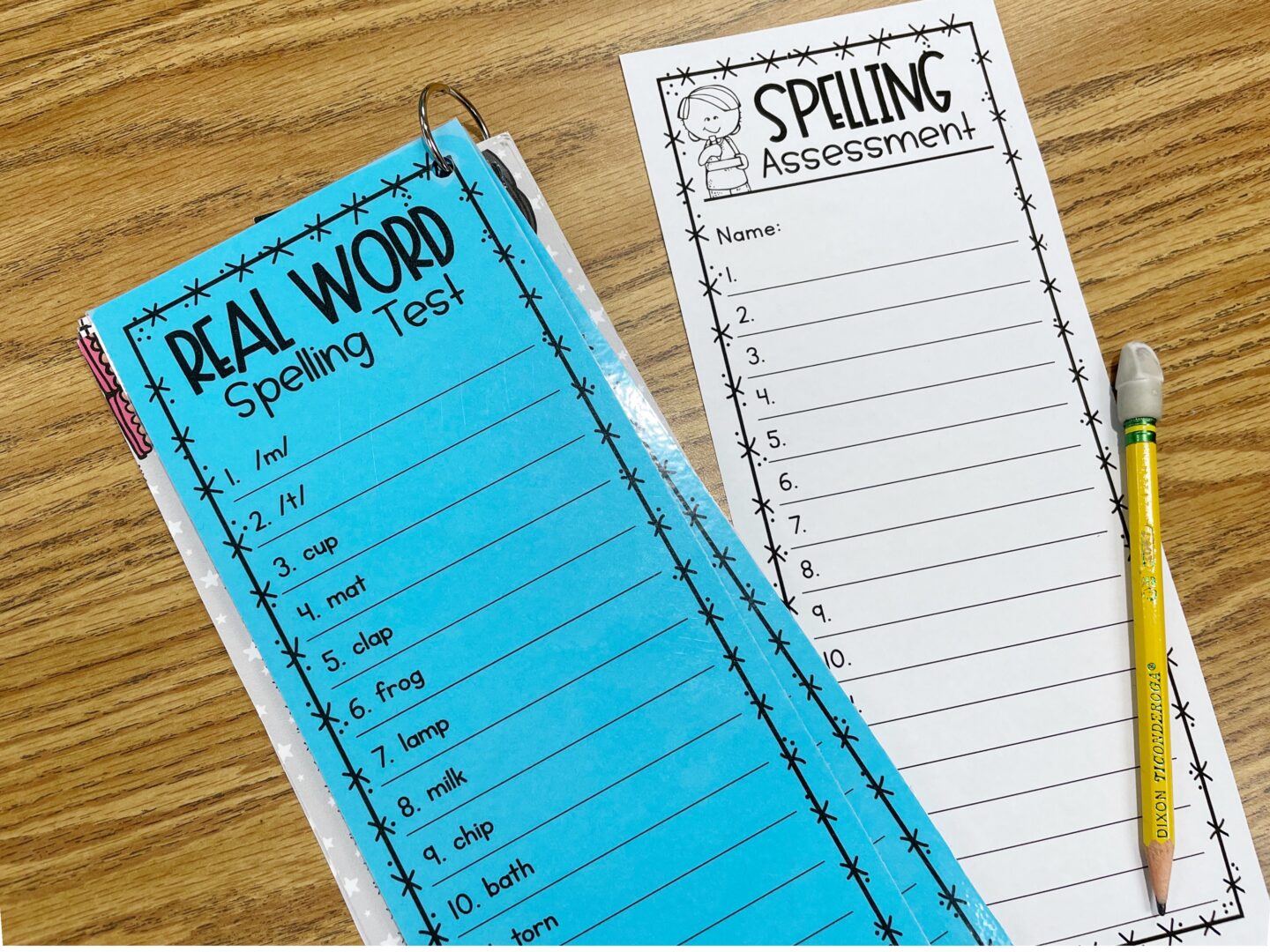
Spelling
Ooooh, spelling! Just because we can read those words doesn’t mean we are ready to spell them. I like to see what strengths and weaknesses my students have in this area too!
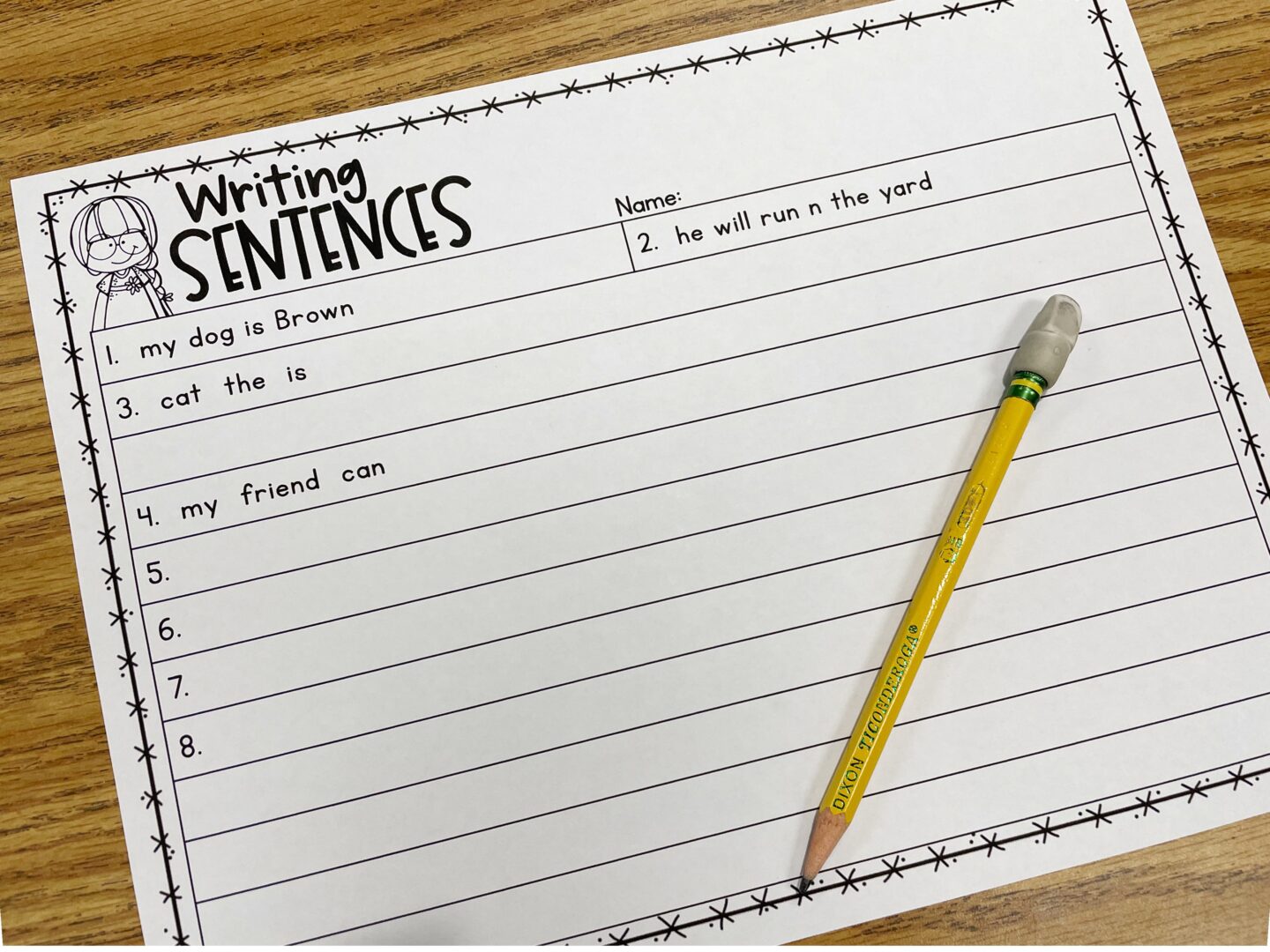
Writing
With this assessment, I use specific directions to ask students to make sentence corrections. Use the provided words in a sentence, write dictated sentences, and create sentences of their own. It’s a great way to see and measure a student’s progress over time.


